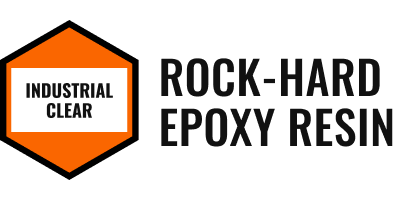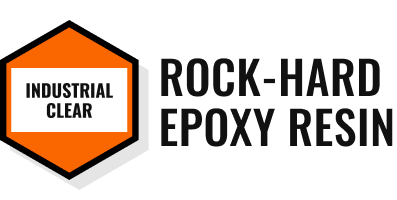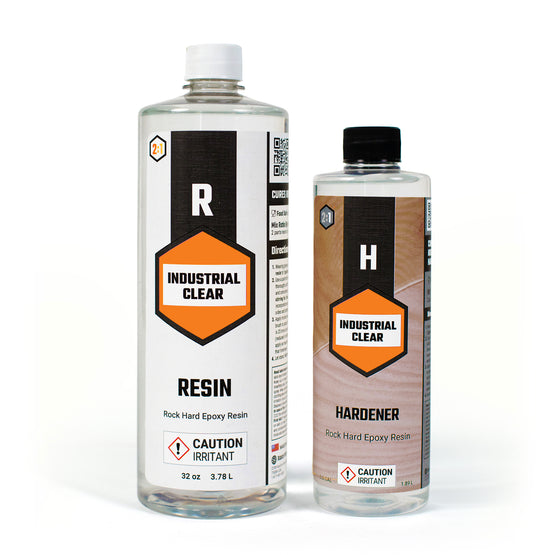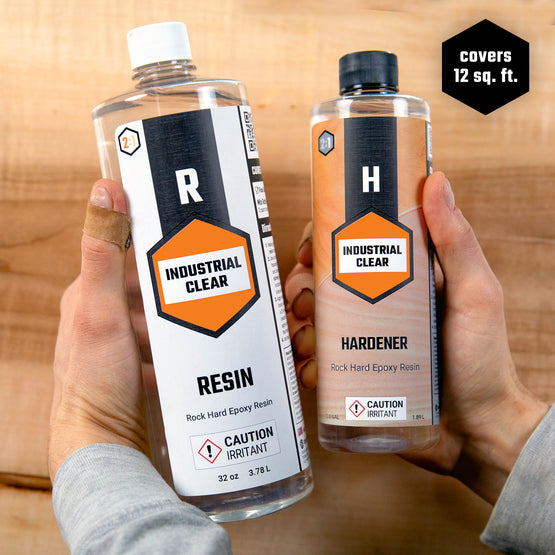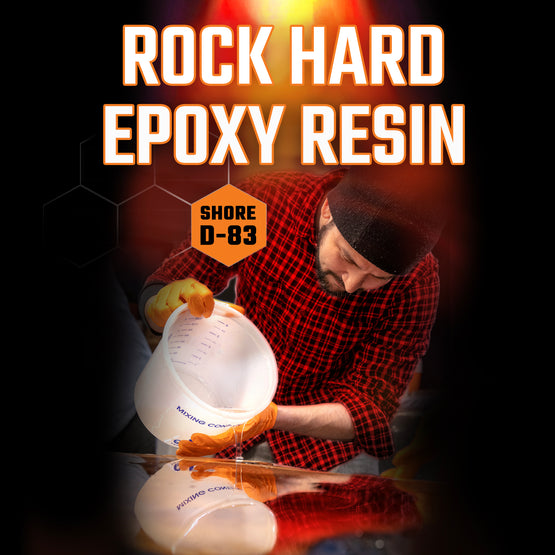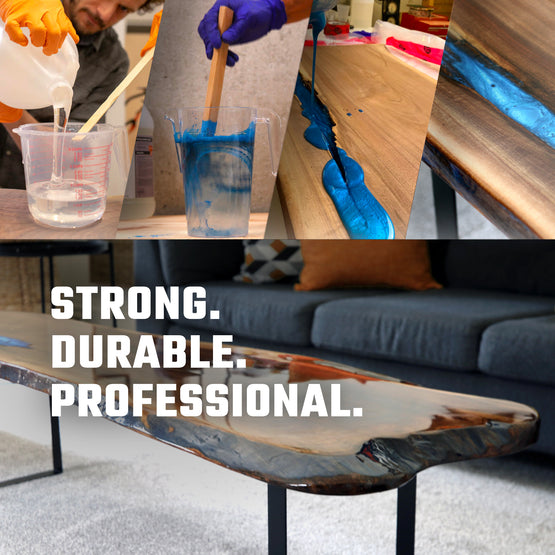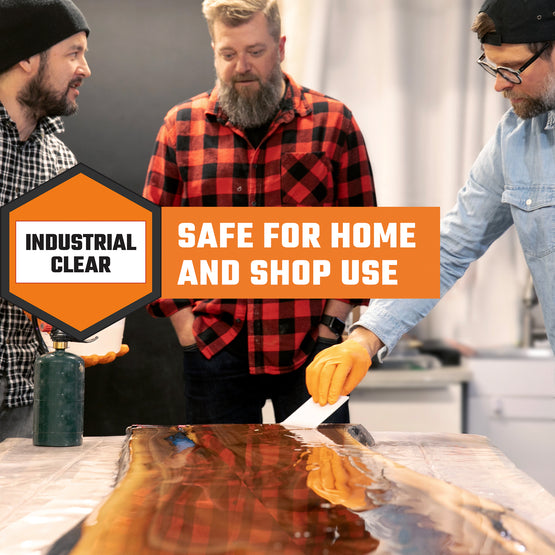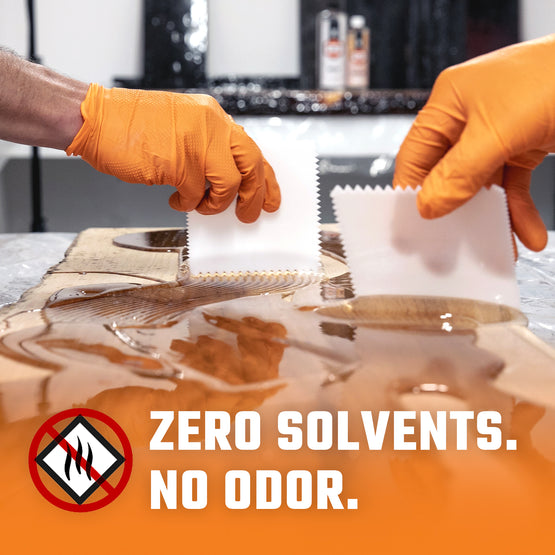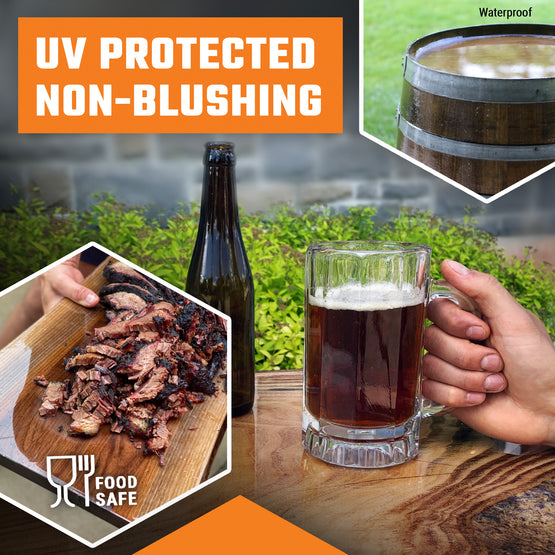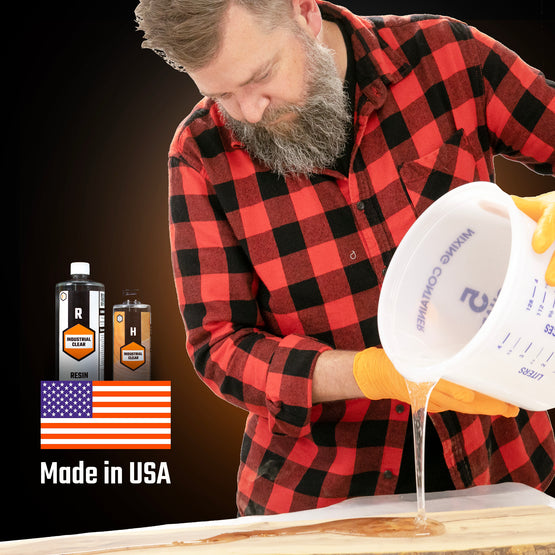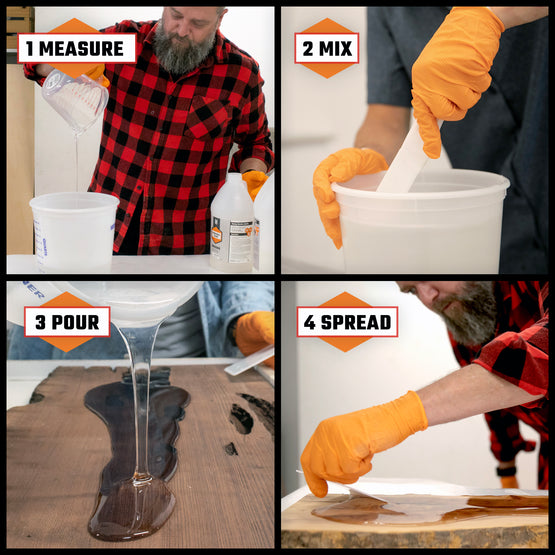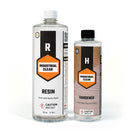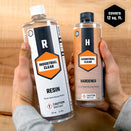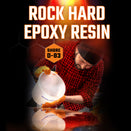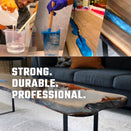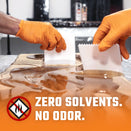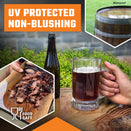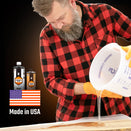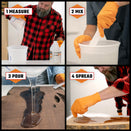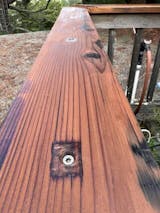48 oz Kit Rock-Hard Epoxy Resin
48 oz Kit Rock-Hard Epoxy Resin
Regular price
$59
Regular price
$59
Sale price
$59
Unit price
per
- ROCK HARD FINISH - Designed to handle the toughest of jobs. UV protected, high gloss formula and an extra hard cure to protect your work for years to come.
- STRONG, DURABLE, RELIABLE - Resists water, chemicals and scratches. A high adhesion formula for high traffic areas including table, bar, and countertops, woodworking projects, floors, boats, metal corrosion protection, and more.
- EASY TO USE - Smooth, no-hassle application. Combine 2 parts resin to 1 part hardener. Mix for 4 minutes. Add color or keep clear. Apply to your surface and let it cure for 24 hours.
- SAFE - Non-Toxic and Food Safe. Our low odor formula has no VOCs, no fumes, no solvents, no fillers.
- PROUDLY MADE IN THE USA - Shore D Hardness 83. Non-Blushing. Industrial Clear works hard and stands the test of time.
- 48 OZ KIT COVERS 12 SQ. FT.
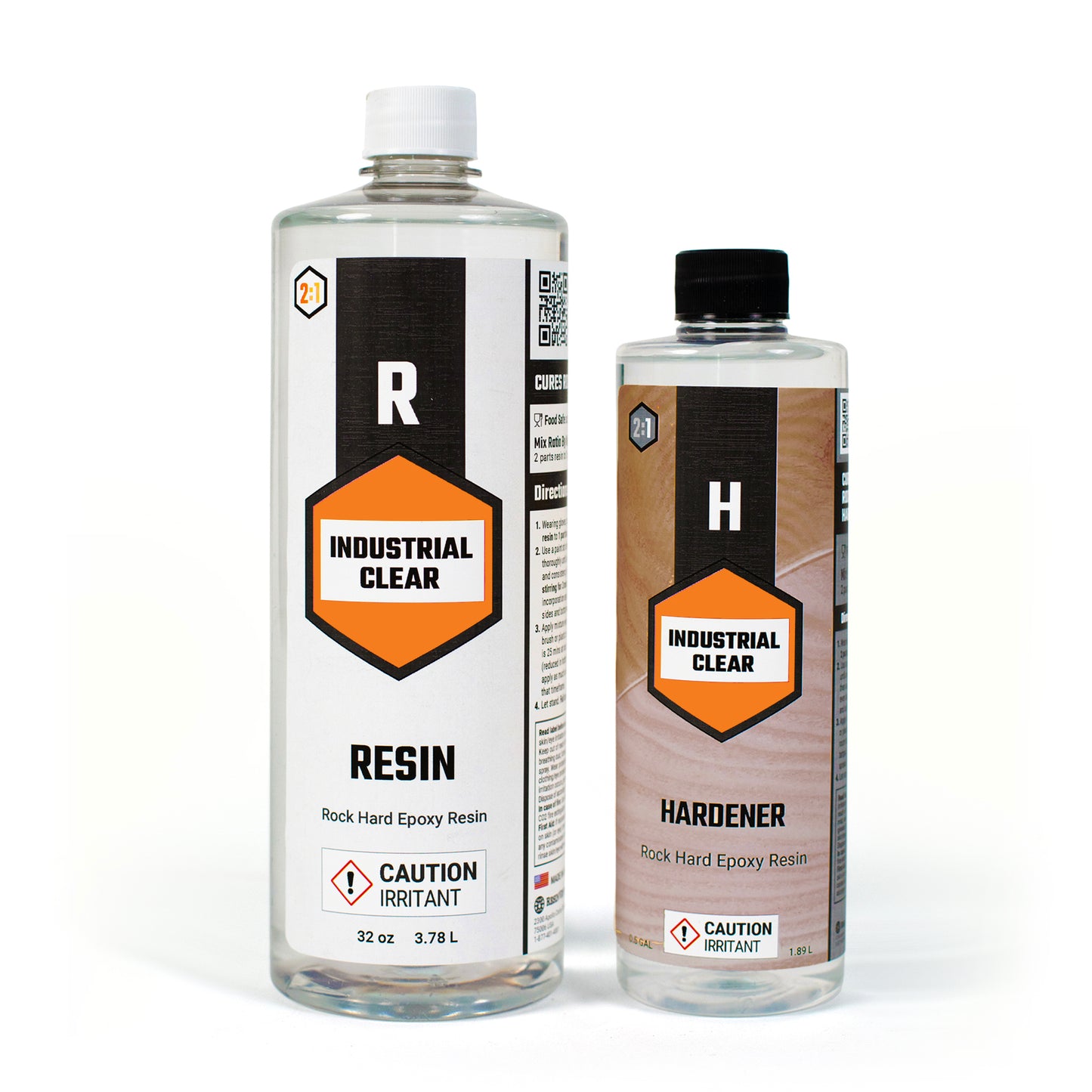
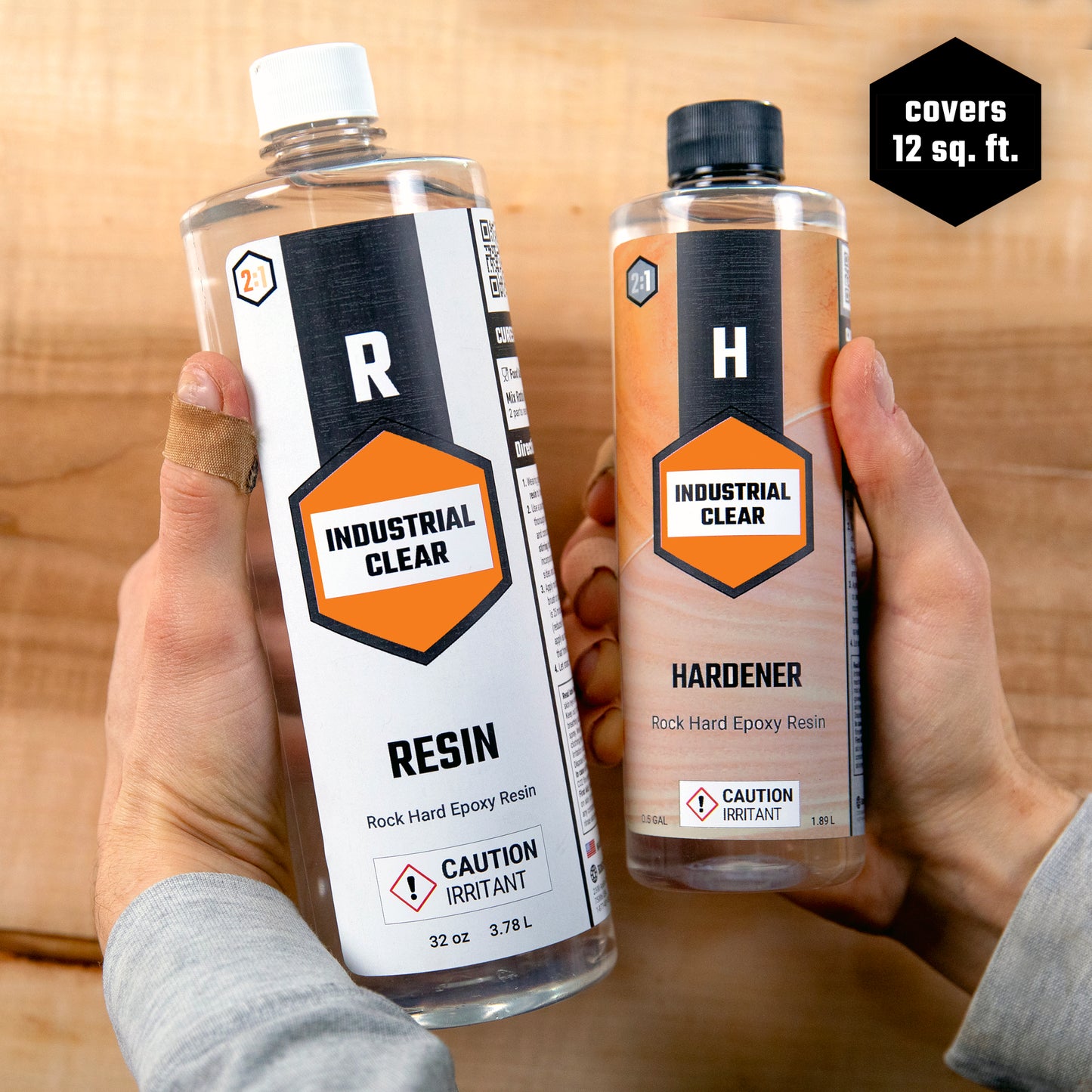
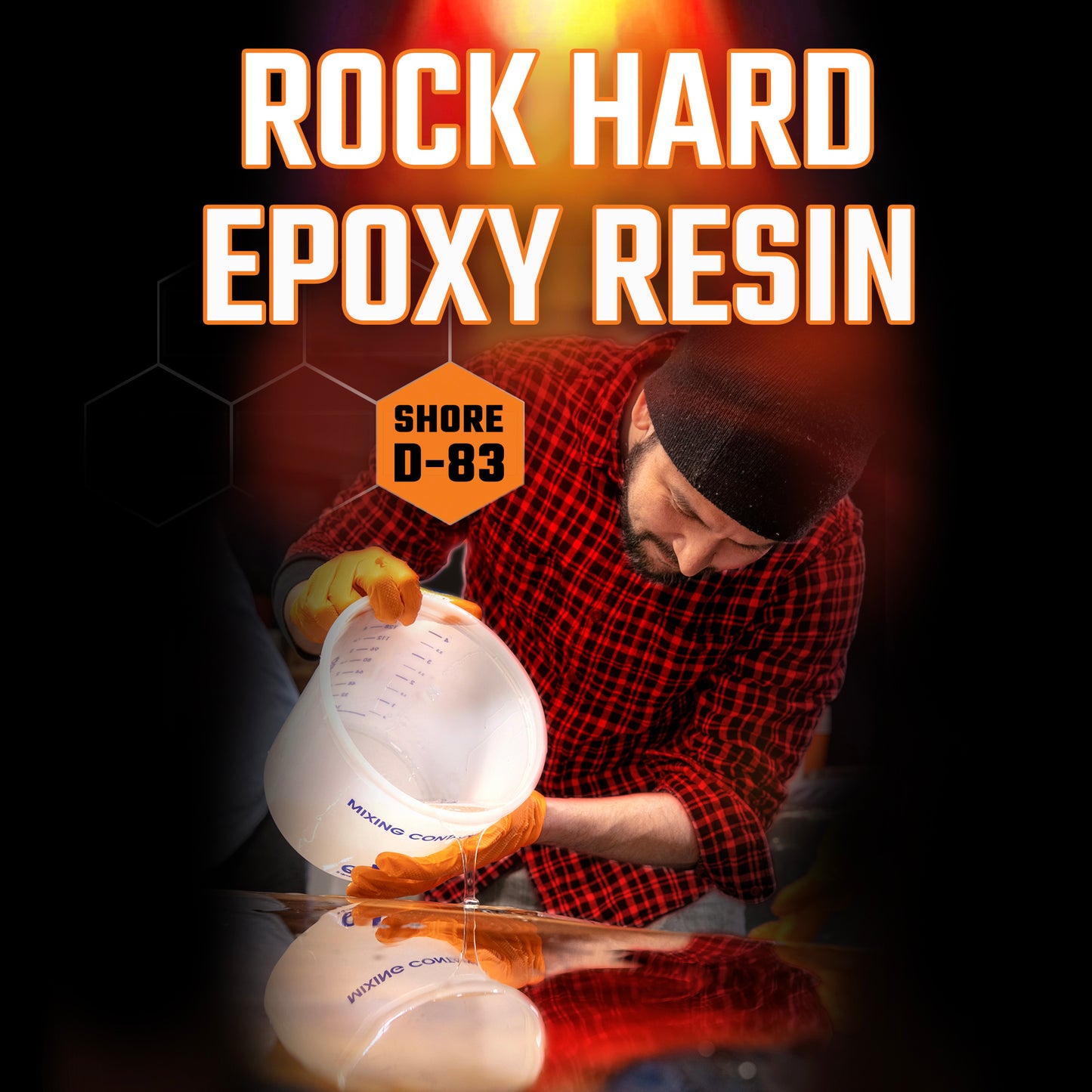
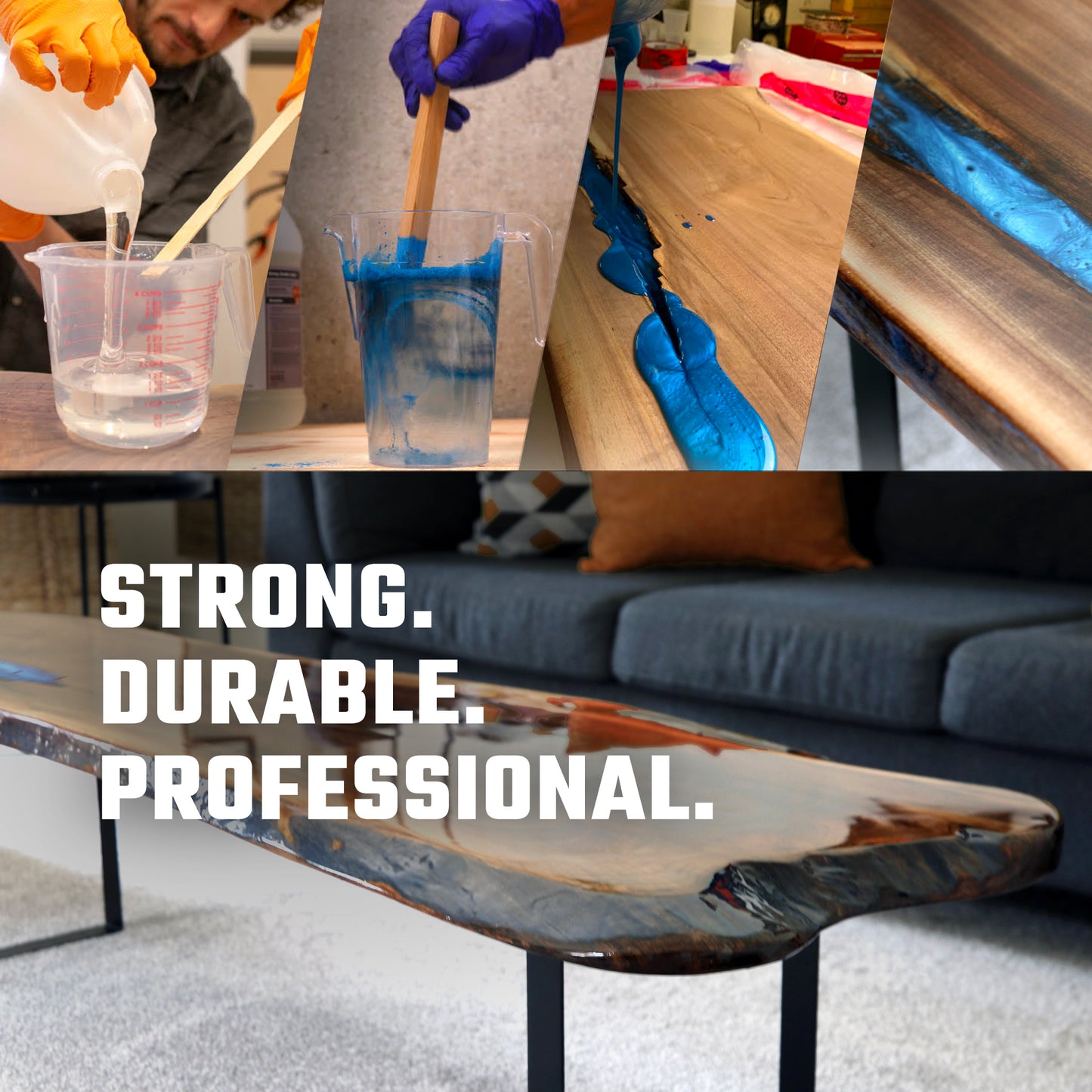
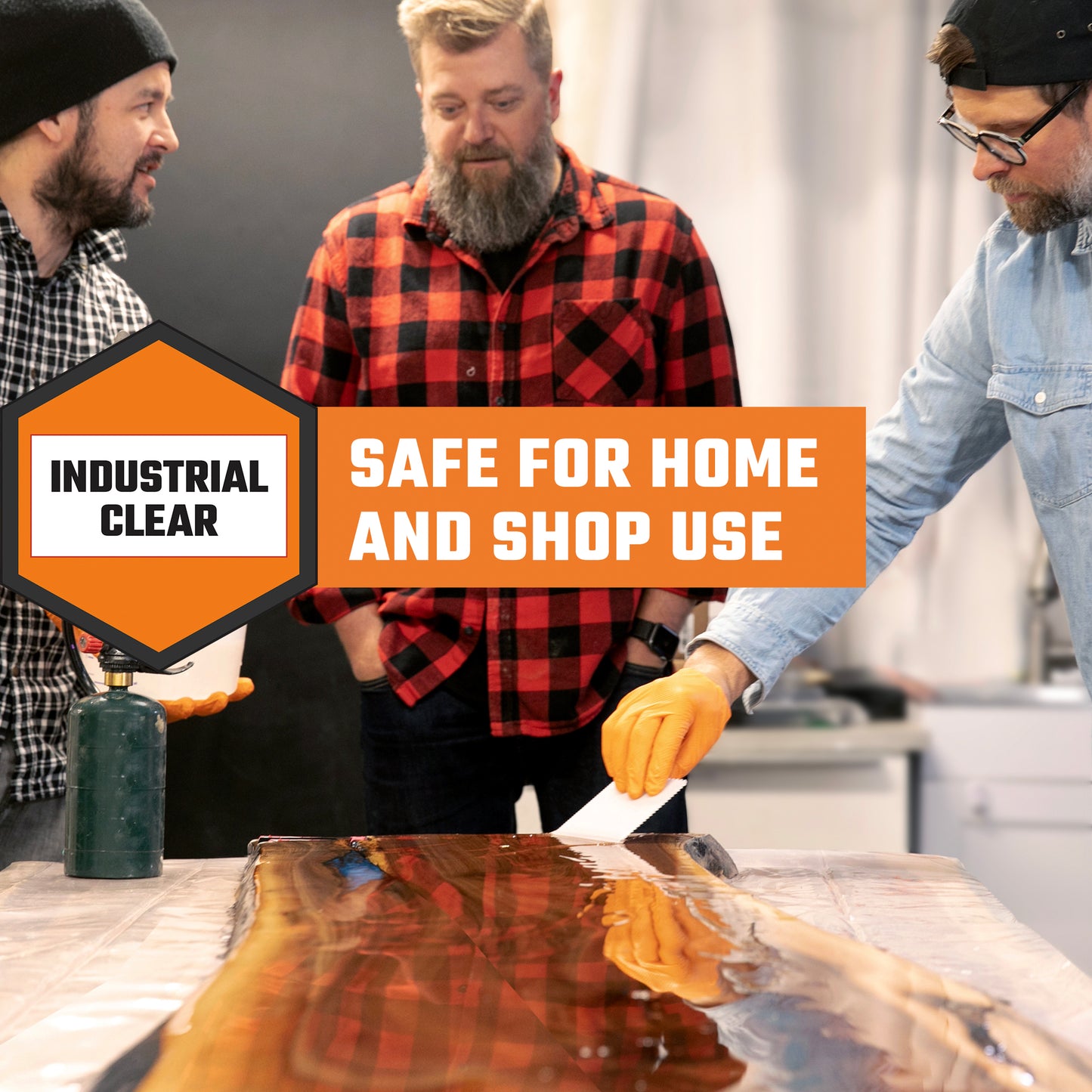
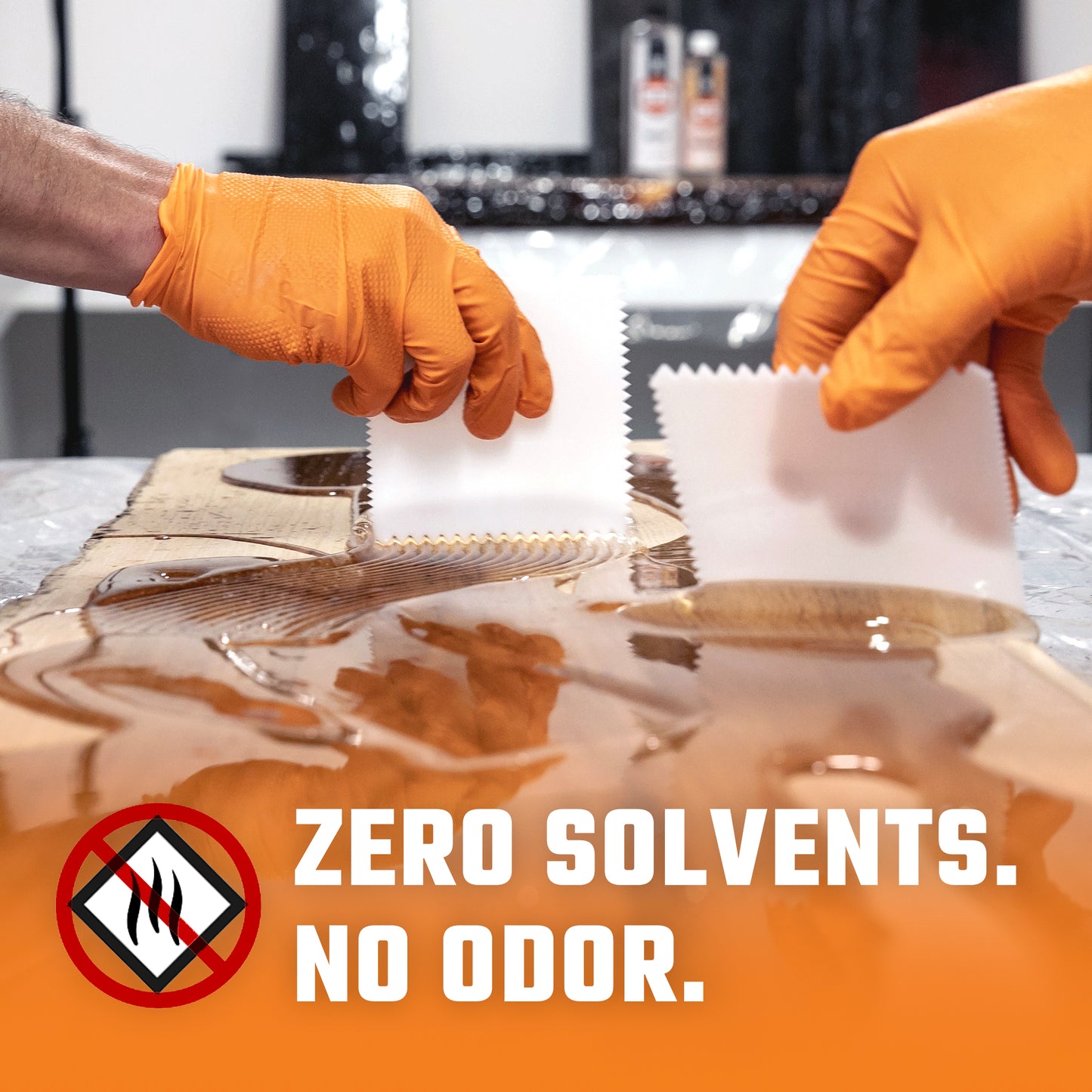
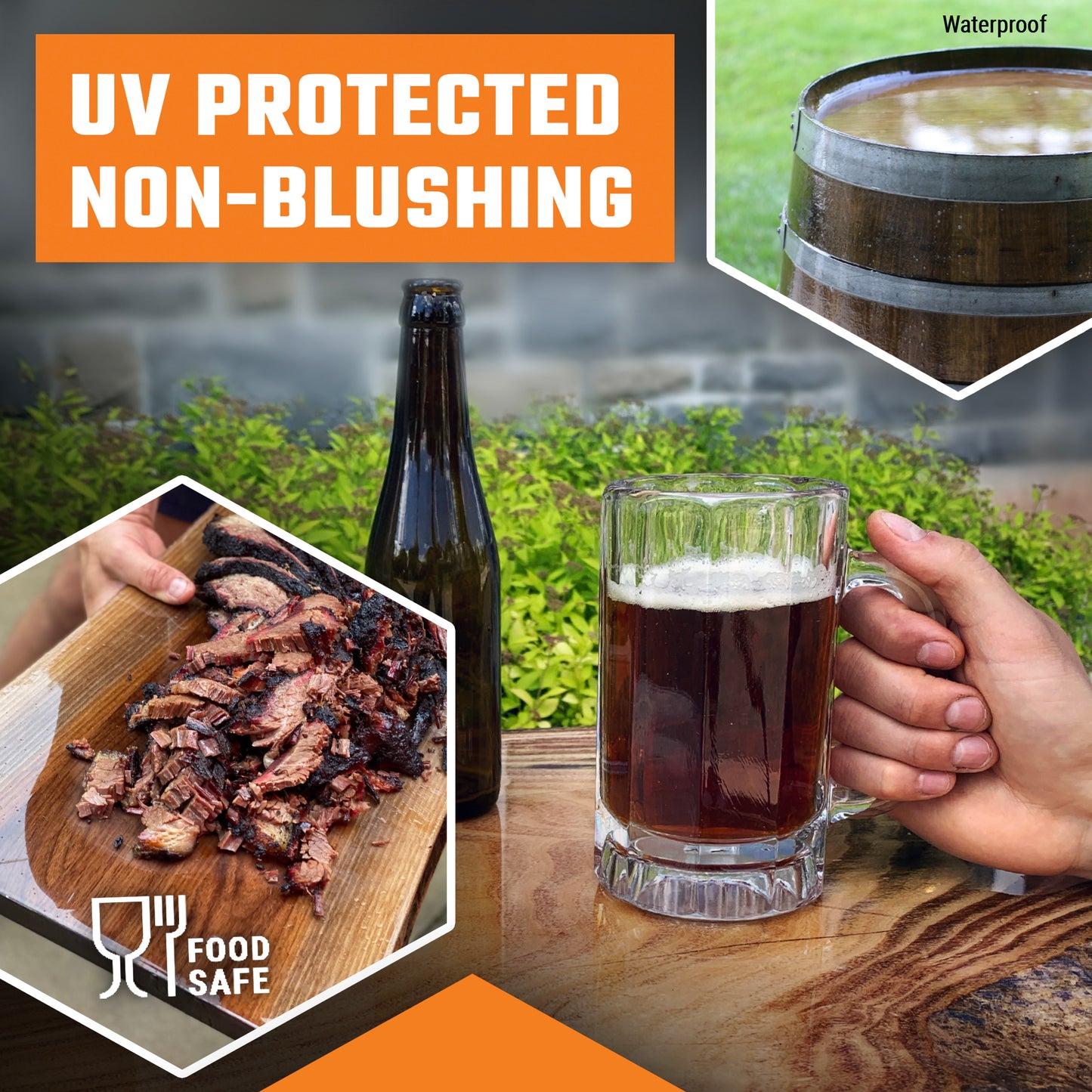
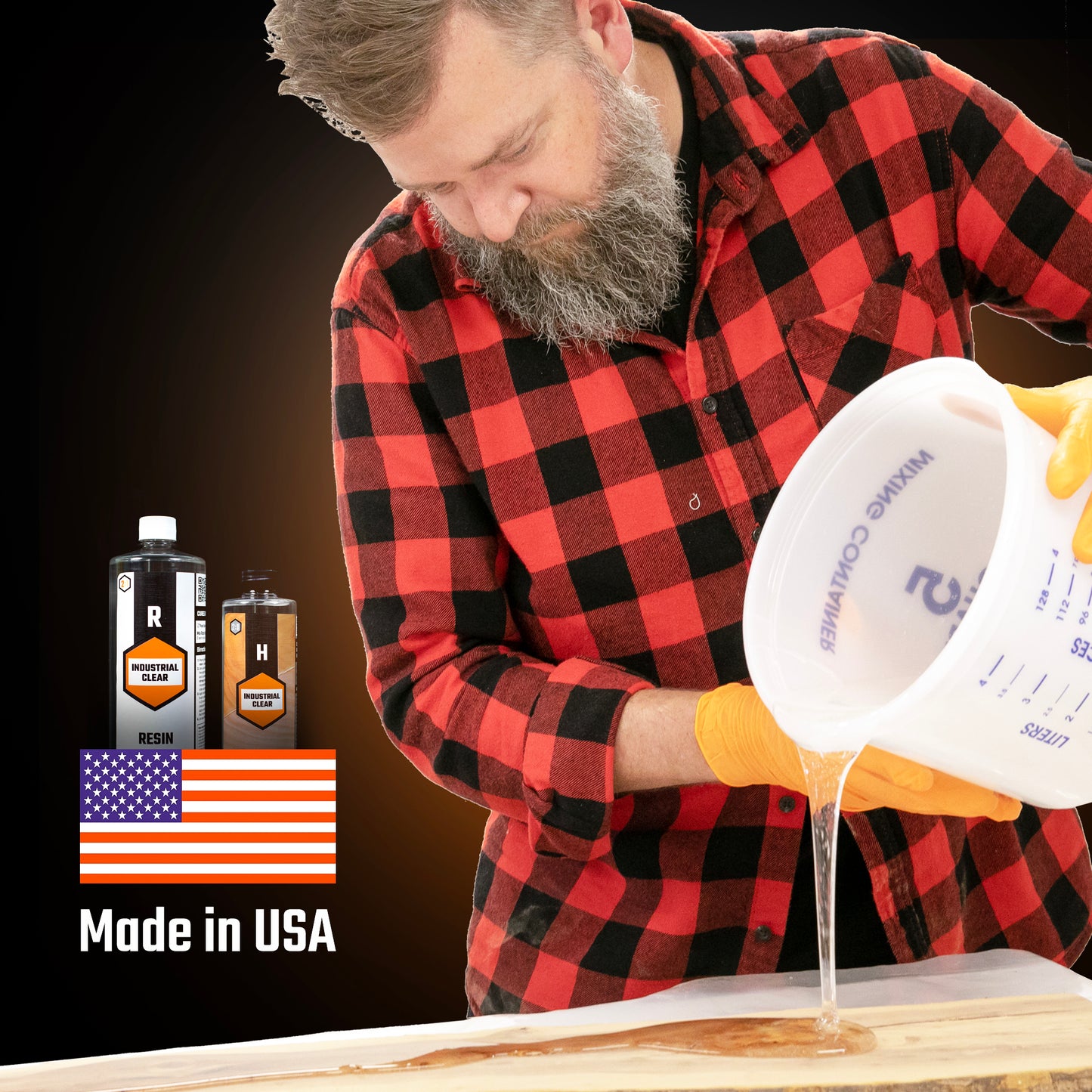
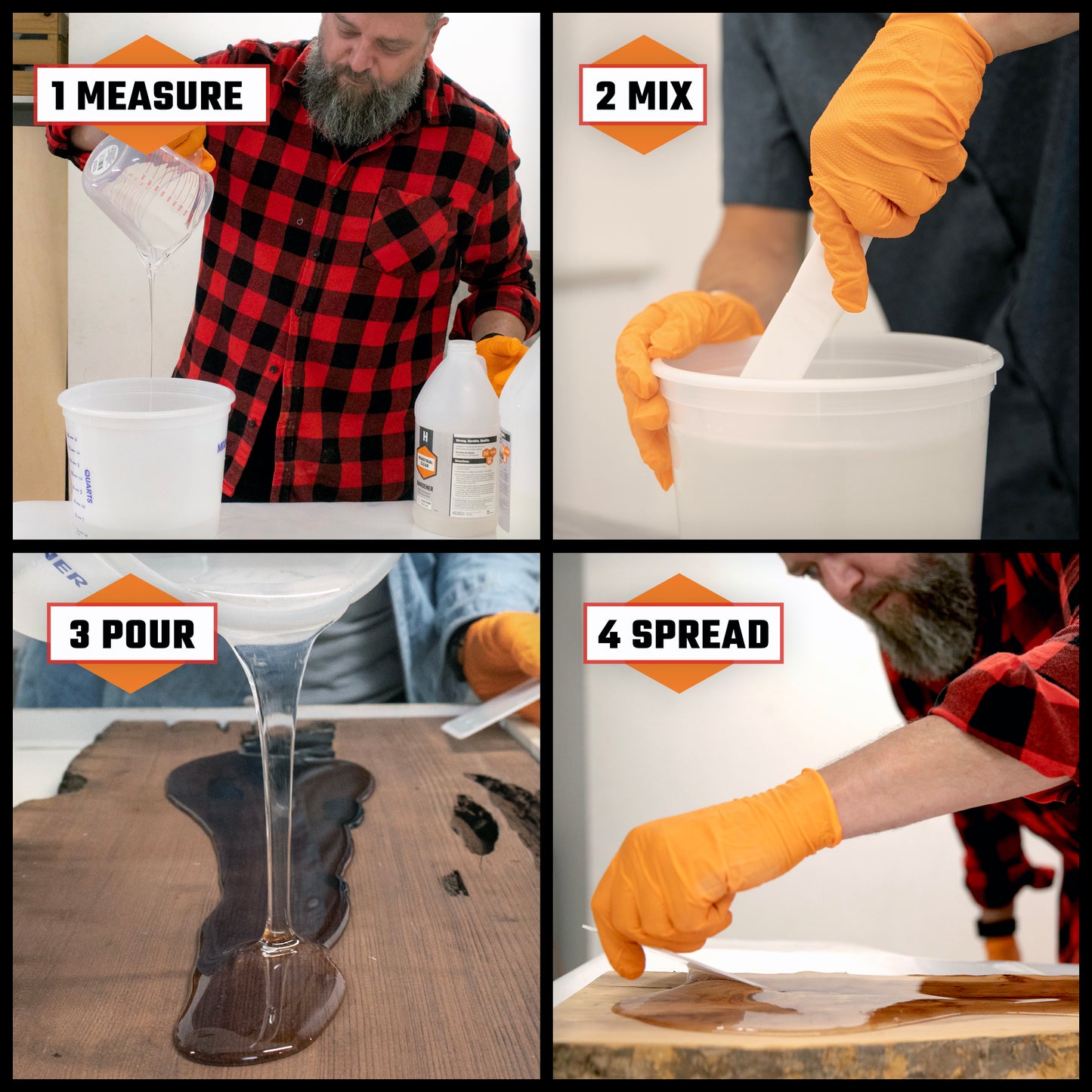

Durable

Extra Hard Cure

Easy to Use

Safe Ingredients

Made in USA
